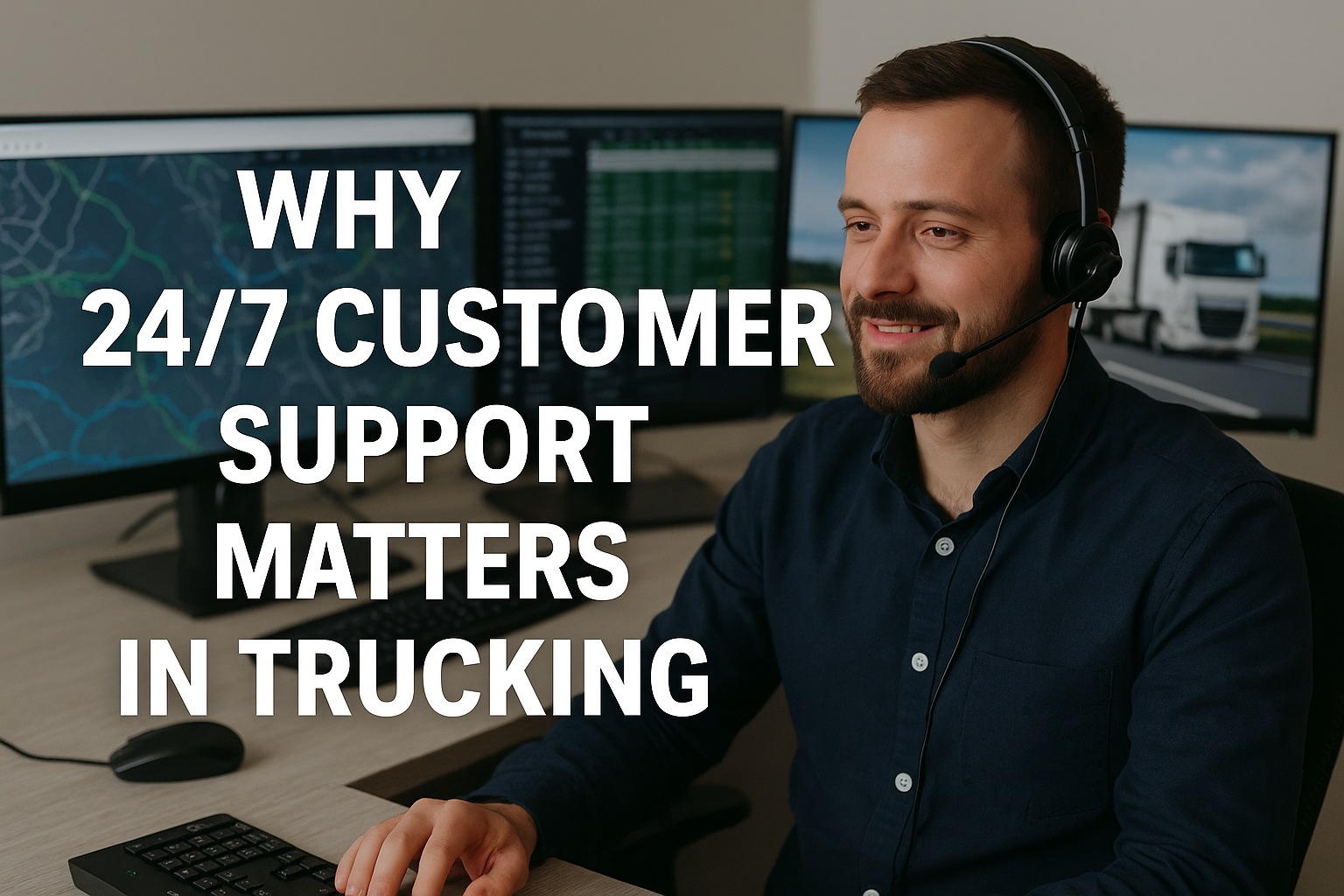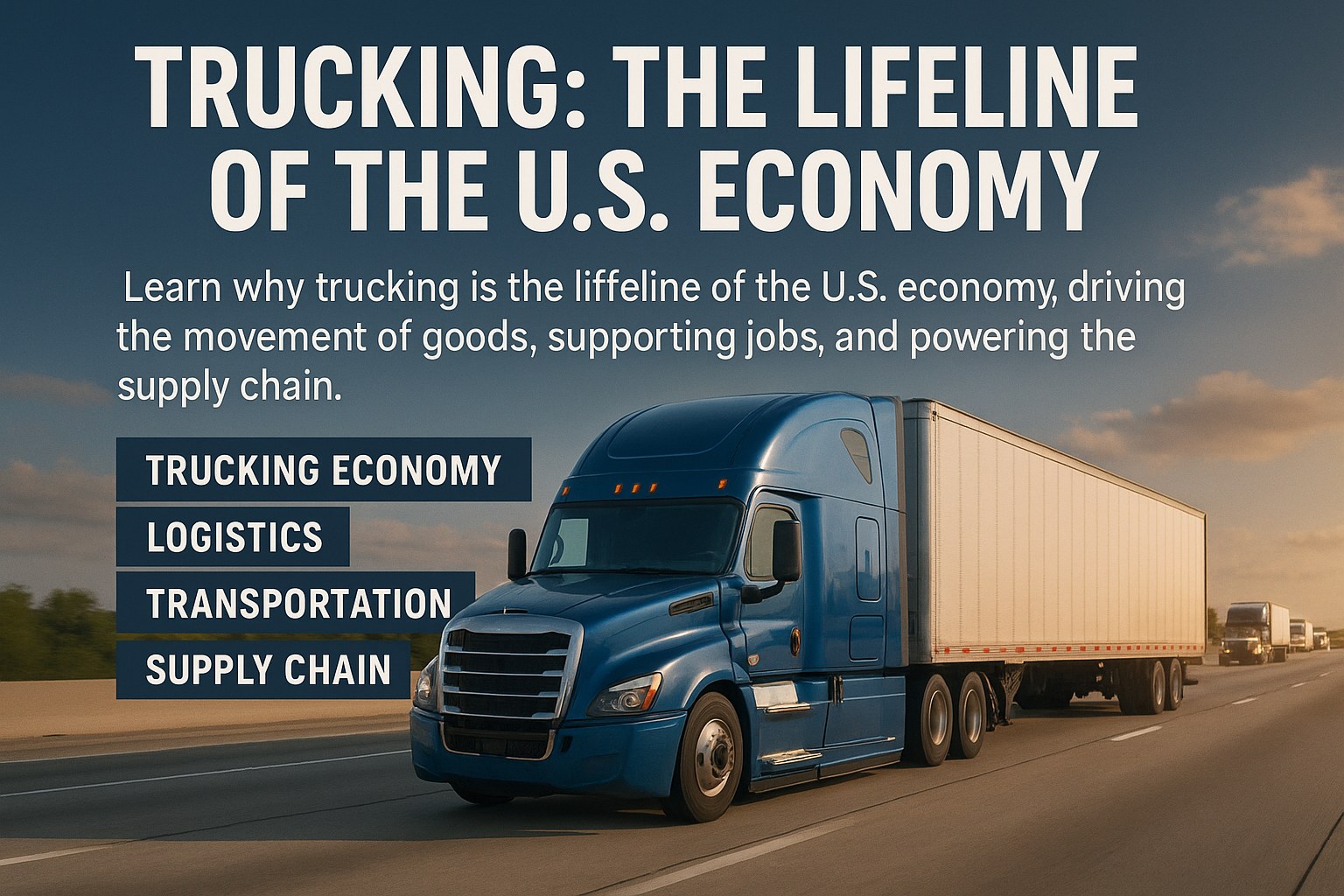The True Cost of Limited Support Hours
When support is only available during business hours, trucking companies face cascading operational challenges that impact every aspect of their business:
$3,500
Cost per hour of downtime
67%
Breakdowns outside hours
4.2hrs
Average wait time
89%
Drivers value support
Critical Scenarios Demanding 24/7 Support
1. Emergency Breakdowns & Roadside Assistance
42% Occur After HoursReality: 42% of breakdowns occur between 6 PM and 6 AM when traditional support is unavailable
Impact: Average delay without 24/7 support: 8-12 hours, costing $28,000-$42,000
Solution: Immediate dispatch, real-time diagnostics, mobile repair coordination
2. Compliance & Documentation Crises
$15,000 Average Fine AvoidedChallenges: DOT inspections happen 24/7, missing documents mean violations
Frequency: 23% of inspections occur during nights/weekends
Requirements: Instant access to permits, logs, maintenance records
3. Driver Health & Safety Emergencies
60% Severity ReductionScenarios: Medical emergencies, accidents, security threats, weather hazards
Response Time: Critical first 30 minutes determine outcomes
Support Role: Emergency coordination, family notification, medical guidance
4. Technology & System Failures
92% Delay PreventionSystems at Risk: ELD failures, GPS outages, communication breakdowns, app crashes
Business Impact: Can strand entire fleets, halt operations
Resolution Need: Immediate troubleshooting, workarounds, system resets
5. Customer Service Excellence
45% Retention IncreaseCustomer Expectations: Real-time updates, immediate issue resolution, proactive communication
Market Reality: 78% of shippers switch carriers due to poor communication
24/7 Advantage: Answer every call, update every status, solve every problem
Transform Your Fleet Operations with 24/7 Support
Join industry leaders who've reduced downtime by 75% and saved millions with comprehensive round-the-clock support systems.
Real Cost Analysis: 24/7 Support vs. Business Hours Only
| Metric | Business Hours Only | 24/7 Support | Annual Difference |
|---|---|---|---|
| Average Downtime per Incident | 12.5 hours | 3.2 hours | 9.3 hours saved |
| Cost per Breakdown | $43,750 | $11,200 | $32,550 saved |
| Driver Wait Time | 4.2 hours | 45 minutes | 3.5 hours saved |
| Compliance Violations | 18 per year | 3 per year | $225,000 saved |
| Customer Complaints | 47% of deliveries | 8% of deliveries | 39% improvement |
| Driver Turnover | 94% annually | 52% annually | 42% reduction |
Building an Effective 24/7 Support System
Tier 1: Immediate Response
First Contact Resolution
- Live phone answering
- Driver location tracking
- Initial problem assessment
- Emergency service dispatch
Tier 2: Problem Resolution
Technical Support
- Technical troubleshooting
- Vendor coordination
- Alternative routing
- Customer notification
Tier 3: Strategic Support
Complex Solutions
- Complex problem solving
- Multi-party coordination
- Compliance documentation
- Long-term solutions
Tier 4: Follow-Through
Quality Assurance
- Resolution confirmation
- Documentation completion
- Preventive analysis
- Process improvement
Technology Stack for 24/7 Support Excellence
Integrated Dashboard
- Real-time fleet visibility
- Driver status tracking
- Route monitoring
- 90% faster issue ID
Critical for dispatch
Mobile Support App
- One-touch emergency
- Photo uploads
- Voice notes
- 75% faster resolution
Driver empowerment
AI-Powered Triage
- Predictive routing
- Automated dispatch
- Smart escalation
- 60% better first-call fix
Efficiency multiplier
Analytics Platform
- Pattern recognition
- Preventive insights
- ROI tracking
- 40% fewer repeat issues
Continuous improvement
Common Mistakes When Implementing 24/7 Support
❌ Understaffing Night Shifts
Problem: Long hold times destroy the value of 24/7 availability
Solution: Staff based on incident patterns, not uniform coverage. Use predictive analytics to optimize scheduling.
❌ Limited Authority Levels
Problem: Night staff can't make decisions, defeating the purpose
Solution: Empower all shifts with clear escalation protocols and spending authority up to $5,000.
❌ Poor Technology Integration
Problem: Support can't access critical systems after hours
Solution: Implement cloud-based platforms with full functionality 24/7, mobile access to all systems.
❌ Reactive Only Approach
Problem: Missing opportunities for preventive support
Solution: Use quiet hours for proactive check-ins, maintenance reminders, route optimization.
❌ No Performance Metrics
Problem: Can't prove ROI or improve service
Solution: Track response times, resolution rates, cost savings, customer satisfaction by shift.
❌ Ignoring Driver Feedback
Problem: Support doesn't match actual needs
Solution: Implement monthly driver surveys, support ride-alongs, continuous improvement cycles.
Start Delivering 24/7 Excellence Today
Don't let another breakdown, compliance issue, or customer complaint cost you thousands. Implement 24/7 support and join the leaders transforming trucking operations.
Frequently Asked Questions
24/7 support typically costs 40-60% more than business hours only support in direct staffing costs. However, the real comparison shows 24/7 support actually SAVES money: For a 100-truck fleet, business hours support costs about $350,000/year but results in $3.2M in downtime losses. 24/7 support costs $580,000/year but reduces losses to $1.1M - a net savings of $1.87M annually. The ROI is immediate and compounds with reduced driver turnover and increased customer retention.
Fleets as small as 20 trucks can justify 24/7 support through shared service models or technology-enhanced solutions. The key factors are: revenue per truck (higher value loads need better support), geographic spread (wider coverage needs round-the-clock help), and customer requirements (JIT delivery demands 24/7 availability). Small fleets often start with after-hours answering services ($200-500/month) and scale up. Even owner-operators benefit from 24/7 breakdown support, which costs less than one major incident.
Successful 24/7 operations maintain quality through: competitive night shift differentials (15-20% premium), rotating senior staff through all shifts, comprehensive training programs with scenario-based learning, clear escalation protocols with on-call managers, and technology that provides equal access to information. Leading fleets report overnight shifts often outperform day shifts due to fewer distractions and more focused problem-solving. Regular quality audits and mystery shopping ensure consistent service levels.
Core technology requirements include: cloud-based fleet management system accessible anywhere, integrated phone system with automatic call distribution, mobile apps for drivers with offline capability, real-time GPS tracking with geofencing alerts, and automated dispatch systems for emergency services. Advanced features that multiply effectiveness: AI-powered triage for faster routing, predictive analytics for proactive support, integration with repair shop networks, and automated customer notification systems. Budget $500-1,000 per truck annually for comprehensive technology.
Key metrics for 24/7 support success: Average response time (target: <2 minutes), first-call resolution rate (target: >80%), downtime hours reduced (track monthly), cost per incident resolved, driver satisfaction scores (survey monthly), and customer complaint reduction. Financial metrics include: overtime costs reduced, violation fines avoided, insurance claims prevented, and customer retention improvement. Leading fleets see 75% improvement in operational metrics within 90 days. Create dashboards showing hourly performance to identify improvement opportunities.








